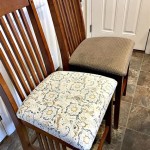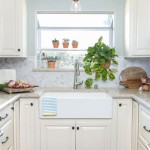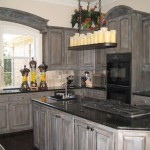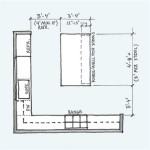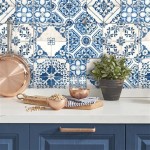Kitchen Sink Materials: Pros and Cons
The kitchen sink is a critical element of any kitchen, and the choice of material can significantly impact its functionality and durability. Several materials are available for kitchen sinks, each with its own advantages and disadvantages. This guide explores the pros and cons of the most common kitchen sink materials to help you make an informed decision for your kitchen renovation.
Stainless Steel
Stainless steel is a popular choice for kitchen sinks due to its durability, ease of cleaning, and resistance to stains. Pros of stainless steel sinks include:
*Durability:
Stainless steel is highly resistant to dents, scratches, and corrosion, making it a long-lasting option. *Hygiene:
Non-porous and easy to clean, stainless steel inhibits bacterial growth, promoting hygiene. *Affordability:
Compared to other premium materials, stainless steel is relatively affordable.However, there are a few cons to consider:
*Noise:
Thin stainless steel sinks can be noisy when water is running or dishes are being washed. *Scratches:
While resistant to minor scratches, deep scratches can develop over time, especially with abrasive cleaners. *Discoloration:
Some stainless steel sinks may develop a slight patina or discoloration over time, especially in hard water areas.Granite
Granite is a natural stone that adds elegance and durability to kitchens. Pros of granite sinks include:
*Durability:
Granite is extremely hard and resistant to heat, scratches, and stains, ensuring longevity. *Heat Resistance:
Granite can withstand high temperatures, making it suitable for use with hot pots and pans. *Aesthetics:
Natural granite comes in various colors and patterns, offering a wide range of design possibilities.Cons of granite sinks include:
*Cost:
Granite sinks are typically more expensive than other materials. *Heaviness:
Granite is a heavy material, requiring reinforcement in cabinetry and countertops. *Porosity:
While less porous than other natural materials, granite sinks may require sealing to prevent staining.Quartz
Quartz is a manufactured material made from crushed quartz combined with polymers. Pros of quartz sinks include:
*Durability:
Quartz is highly resistant to scratches, stains, and chemicals, making it a low-maintenance option. *Non-Porous:
Unlike granite, quartz is non-porous, eliminating the need for sealing and reducing the risk of staining. *Variety of Styles:
Quartz sinks come in a wide range of colors and styles, allowing for customization to match any kitchen design.Cons of quartz sinks include:
*Cost:
Quartz sinks are generally more expensive than stainless steel. *Heat Resistance:
While heat-resistant, quartz can be damaged by extreme heat, such as placing hot pots directly from the stovetop. *Weight:
Similar to granite, quartz is a heavy material requiring proper support.Ceramic
Ceramic is a traditional material used in kitchen sinks. Pros of ceramic sinks include:
*Ease of Cleaning:
Ceramic is non-porous and easy to clean, making it hygienic and low-maintenance. *Durability:
While not as durable as granite or quartz, ceramic sinks can withstand daily use and minor wear and tear. *Variety of Colors:
Ceramic sinks come in various colors and finishes, providing design flexibility.Cons of ceramic sinks include:
*Chipping:
Ceramic is prone to chipping or cracking if subjected to heavy impacts. *Cold to the Touch:
Ceramic sinks can feel cold to the touch, especially in the winter months. *Weight:
Ceramic is a heavy material that may require additional support in the cabinetry.Cast Iron
Cast iron is a durable and classic material for kitchen sinks. Pros of cast iron sinks include:
*Durability:
Cast iron is extremely durable and can withstand heavy use and high temperatures. *Heat Retention:
Cast iron retains heat well, keeping water warm for extended periods. *Aesthetics:
Cast iron sinks have a timeless charm and add character to traditional kitchens.Cons of cast iron sinks include:
*Weight:
Cast iron sinks are very heavy, requiring reinforced cabinetry and countertops. *Rust:
Cast iron is prone to rust if not properly cared for and dried thoroughly after use. *Porcelain Enamel Coating:
Cast iron sinks often have a porcelain enamel coating, which may chip or crack over time.14 Best Kitchen Sink Materials For Ultimate Durability Style Vevano
14 Best Kitchen Sink Materials For Ultimate Durability Style Vevano
14 Best Kitchen Sink Materials For Ultimate Durability Style Vevano
14 Best Kitchen Sink Materials For Ultimate Durability Style Vevano

Top 10 Kitchen Sink Materials Pros Cons Ruhe

Kitchen Sink Materials Pros Cons And Best Choices Mccoy Mart
Top 6 Kitchen Sink Materials The Pros And Cons
14 Best Kitchen Sink Materials For Ultimate Durability Style Vevano

Pros And Cons Of Each Sinks Material

Top 7 Kitchen Sink Materials With Its Pros Cons


